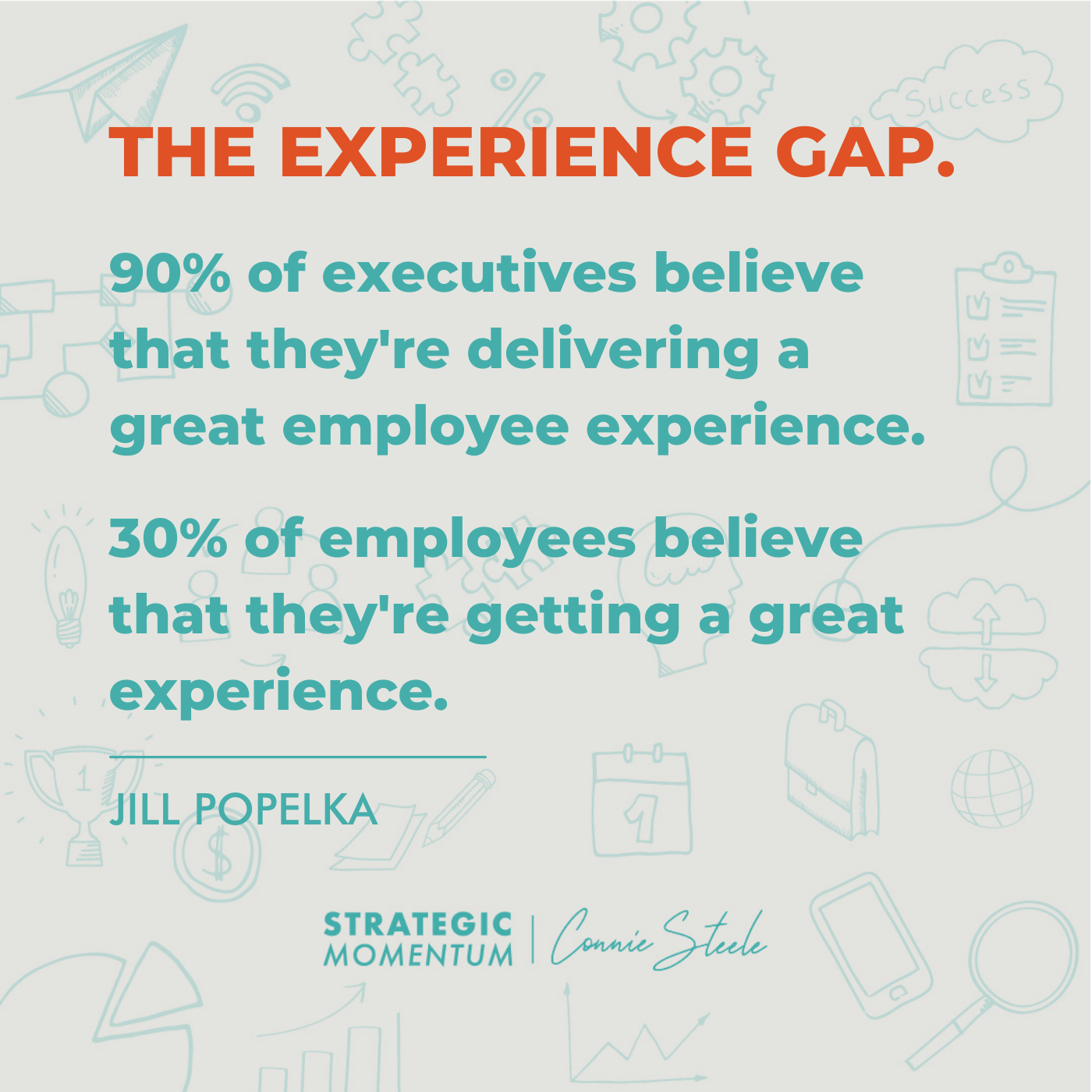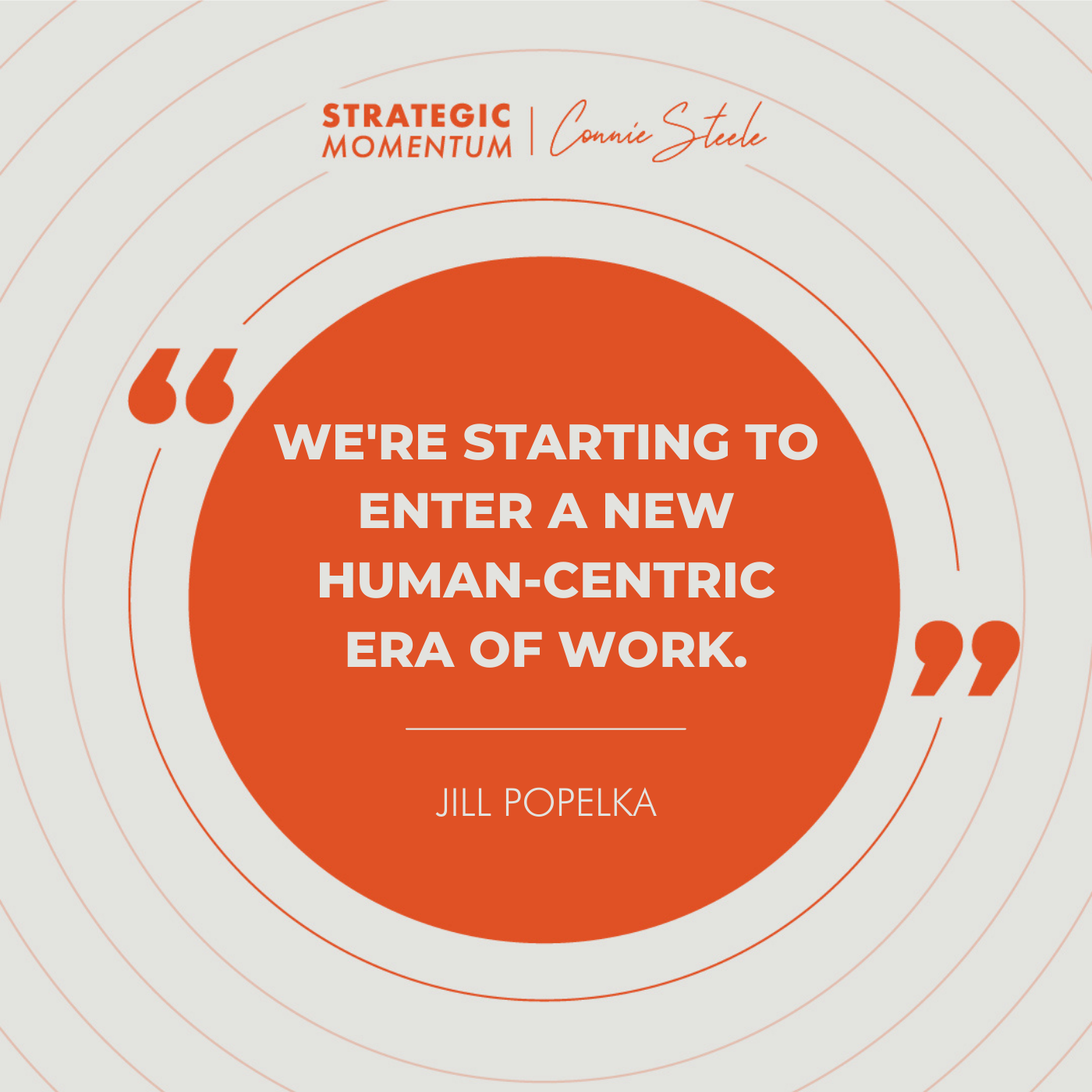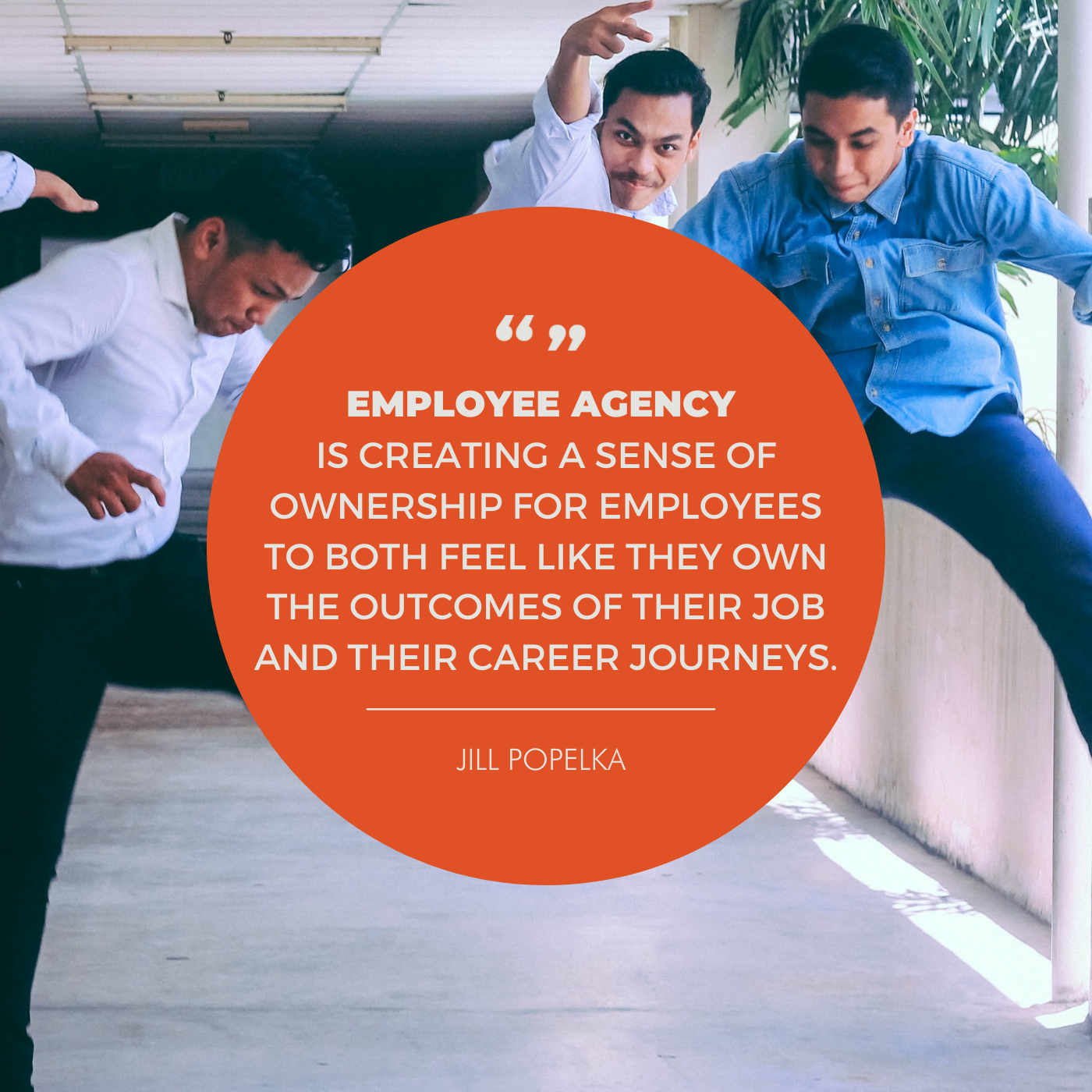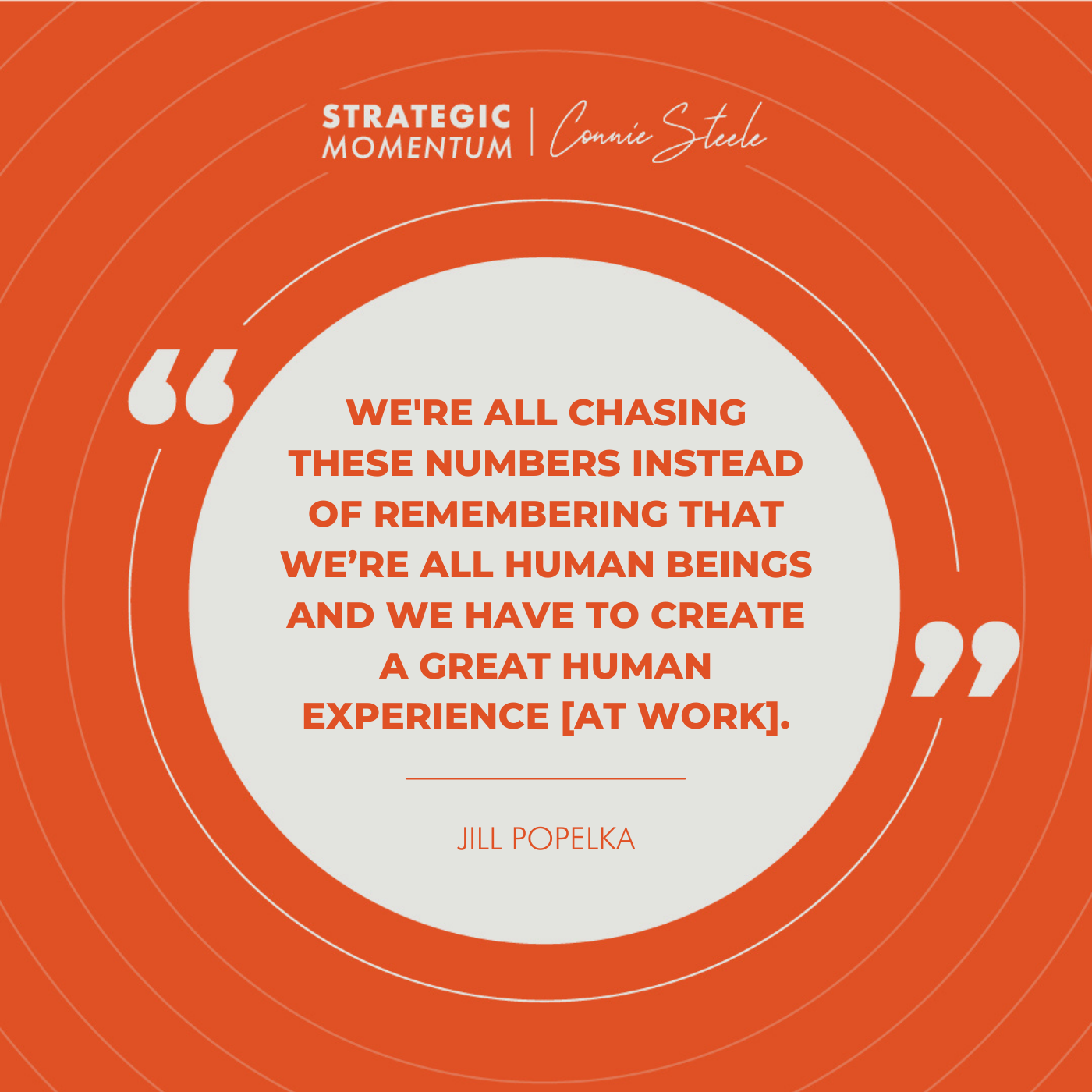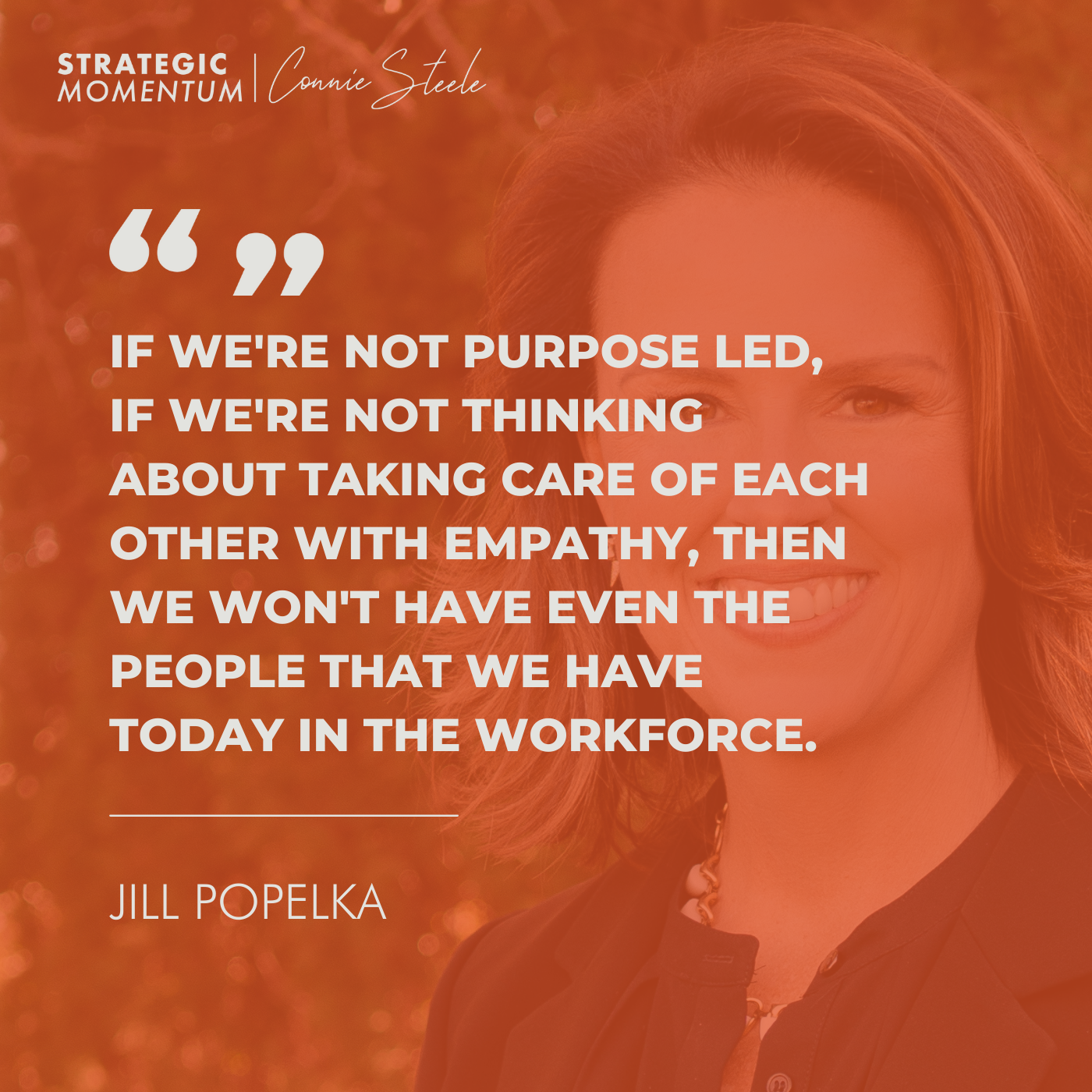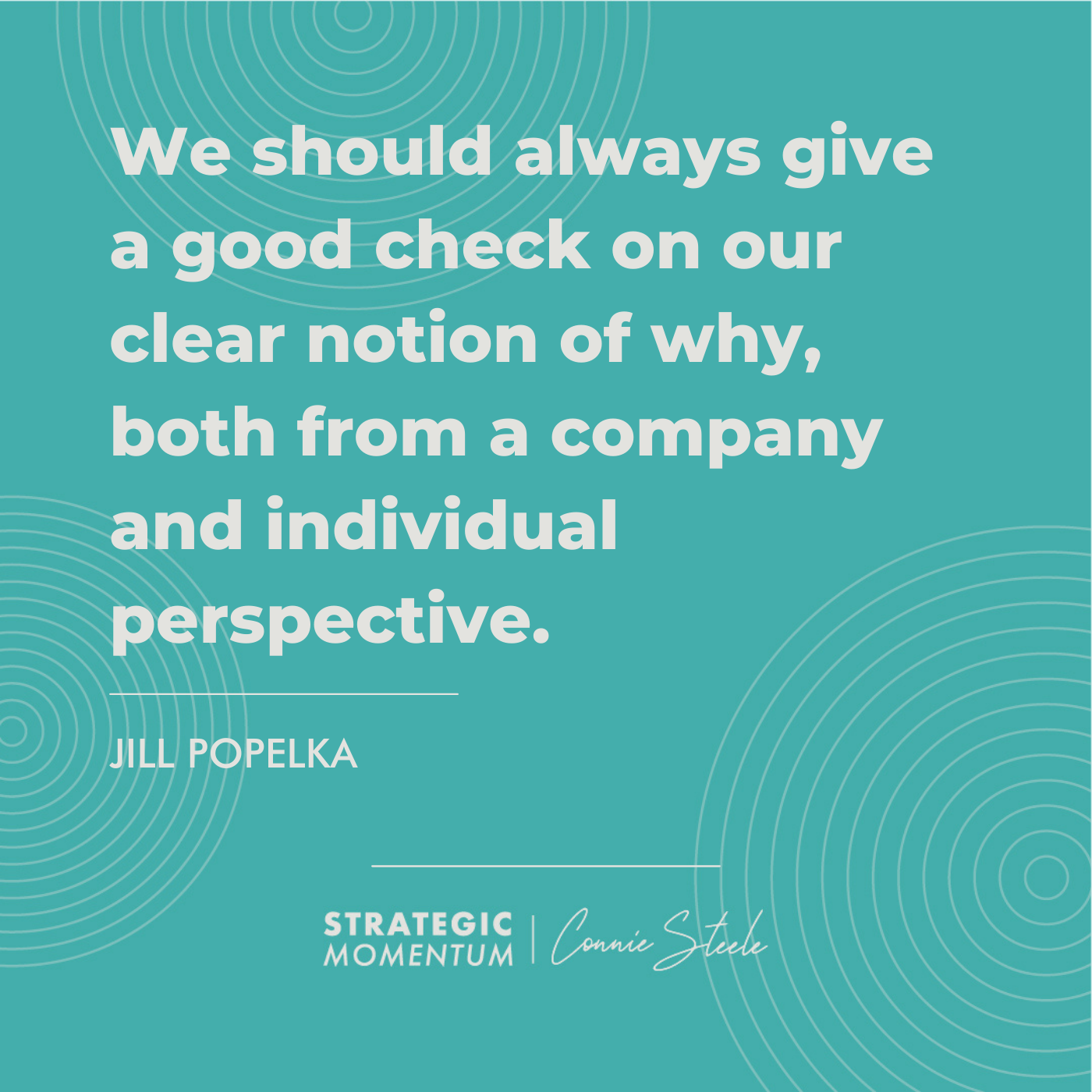Ep. 112 - Employee Experience: Why Fulfillment Matters & How to Close the Experience Gap - with Jill Popelka
Find Us Wherever You Listen To Podcasts
The world of work has fundamentally changed from one that is siloed, sequential, rigid, and conformist to one that's much more fluid, collaborative, multimodal, and individual. People are truly recognizing the importance of being able to bring their whole self to work — and, for the first time for many of us, feeling like they should be empowered to bring their whole self to work.
And today, we’re talking all about the employee experience in a post-COVID world with Jill Popelka.
Jill is the author of the new book “Experience, Inc: Why Companies That Uncover Purpose, Create Connection, and Celebrate Their People Will Triumph.” She’s also the President of SAP SuccessFactors and a sincere believer that purpose drives people, and people drive business performance to help the world run better and improve people’s lives.
Why Now is the Right Time for “Experience Inc”
During the pandemic, Jill realized that she missed being with people. And while she was connecting with folks digitally, it wasn’t the same feeling. I think most of us have felt like that at some point over the last few years.
So she decided to do some research to understand why connecting with people digitally just feels different And she found that, when people come together, they can actually be more creative and more innovative.
She started thinking about how organizations can focus on that fundamental employee experience. What is it that employees are experiencing as they come to work every day? How can you develop human connection in any environment? How can we foster a sense of belonging, no matter where an employee is in the world?
Everyone is trying to figure out how to adjust to this new world order. Jill believes we have started to enter a new human-centric era of work, and organizations are going to have to respond to that.
What Do Employees Want?
Jill shares that there needs to shift from a focus on growing revenue, capitalizing on new markets and customers, innovating faster than competitors to one that is about helping people to have a work experience that fulfills them.
Unfortunately, businesses too often focus on metrics and fail to treat their employees as people. And as a result, most organizations fail to motivate people to do their best work. Becoming a truly human-centric organization requires leaders to understand the needs, motivations, attitudes, and various approaches people may want to take to unleash their potential and find fulfillment.
What Jill found in their research across both knowledge workers and frontline workers is that what they want is authentic leadership — those that truly connect on a human level and model behaviors that reflect their values, like not working during certain times of the day or using technology in a more human way.
Further, all generations are also worried about their health and well-being, so it’s important to have empathy and support for the mental and physical health of employees.
Critically, you have to acknowledge that this isn’t an HR issue —this is a leadership issue. It’s necessary for all leadership to recognize that what people want is to bring their whole selves to work, and that’s why leadership should be more focused on delivering a great employee experience.
When employees are able to share their passions and feel joy at work such that there is a common purpose, that's when the greatest learning can happen.
What is Employee Experience and Why Does it Matter
Jill defines the employee experience as the beliefs, feelings, attitudes, and behaviors that result from your job experience. It’s the confluence of an individual’s sense of purpose, agency, belonging, and recognition.
There are three types of experience that influence how individuals feel about work:
Task experiences involve how easy it is to get things done. Do organizations make it easy for employees to do their jobs? Do we give them the tools that they need? A good task experience makes an employee feel efficient and positive when they leave their workday.
Social experiences reflect whether you like the people you work with. Am I enjoying my leadership team and the peers around me? Are we really creating a fun and enjoyable climate? Unfortunately, this is overlooked, but a bad social experience can directly contribute to feelings of burnout, isolation, and a lack of productivity.
Fulfillment experiences are about whether you are getting what you need from work. Am I being fulfilled? Does my job allow me to achieve the goals that I have in my career and life so that I feel like I have a higher purpose?
Jill also outlines four critical elements that are involved in creating a great employee experience:
Purpose is about finding meaning in your work. This is where building the right experience starts for companies. It’s about understanding your why (your purpose) from both the company perspective and the individuals in your company. This can keep leaders focused on the right priorities and determine where you are out of alignment.
Agency is about employees getting the chance to really own how, when and where they work. To create that sense of ownership, you have to give employees the opportunity to own their job outcomes, career path, and career journey. That involves offering them a choice to try new things that fit with their interests but are still in alignment with the company's purpose.
Belonging is the feeling that you are part of a community that's really working toward the singular purpose. It’s so important to also provide psychological safety in your environment, which connects to the other diversity, equity, and inclusion goals that are important to note.
Recognition is about making your employees feel valued and showing your gratitude in a meaningful way. It’s important to consider how you deliver that gratitude and recognize your employees because it reinforces a behavior that can drive culture.
Where Do Organizations Struggle in Creating That Employee Experience?
Companies struggling in creating positive employee experiences, largely, because their sole focus is on the metrics — Are we hitting revenue goals? What’s the profit margin? Can we lower costs?
There was a shift happening, however, in the past 10 years, with regards to understanding the impact of the human element on building that sense of community; those important traits that bring people together.
But when the pandemic hit and it impacted the way we all worked, there was a default back to those metrics, those key performance indicators (KPIs). In crisis, leadership reverted back to addressing an agenda vs people.
“All of us are dealing with the fact that we're all chasing these numbers instead of remembering that we are all human beings, and we have to create a great human experience because if we're not purpose-led. If we're not thinking about taking care of each other and empathy, then we won't have even the people that we have today in the workforce right? We'll continue to lose.”
How Can Organizations Start to Build the Employee Experience?
I really love how much of what Jill shares in this episode and in her book aligns with the research we’ve been sharing this year.
What employees want, what employees have been wanting for a while now, is changing. And even though our organizations acknowledge there is a problem, a gap of some kind, they’re still using the same old tools to solve new problems.
But KPIs won’t help you learn about an individual’s needs, motivations, attitudes, or how they like to learn. Metrics won’t help you care. And your people have enough options that they can and probably will choose to leave if they sense you don’t care.
So, if you want to create a great employee experience that helps your people build careers filled with purpose, agency, belonging, and recognition, there needs to be a cultural shift at the leadership level — a shift from being metrics led to purpose led. It’s about understanding your why.
And as an employee, you can help create a better employee experience by assuming positive intent from your leadership first. Assume they want to change the environment for the better. Also provide feedback that you believe can improve the organization. This way, you can help bridge the experience gap that exists. Every employee can be a leader, and showing empathy for your colleagues and peers can go a long way to develop that sense of belonging as well.
Definition of Career Success & How That’s Evolved
For a while I was climbing the ladder a little bit, but I realized that what I want to do now is have a positive impact on people's lives.
If I can help other people see the strengths in themselves and really grow as individuals in their career, however they're looking to grow, that's really my greatest success.
Best Work Advice
Share with people that you believe in them. And you'll be surprised what potential would be unleashed.
Key Takeaways
For companies to create a great employee experience, they have to shift from being metrics-led to being purpose-led.
This isn’t just a nice thing to do. With staffing shortages prevalent, you won’t be able to attract or retain the right workforce to help you accomplish your business goals if you don’t make some changes.
Employee experience refers to the beliefs, feelings, attitudes, and behaviors that result from your job experience and is composed of the task experience, social experience, and fulfillment experience.
A good task experience makes an employee feel efficient and positive when they leave their workday.
A good social experience creates a fun and enjoyable climate with the people you are working with.
A good fulfillment experience allows you to achieve your goals that you want and feel you have a higher level of purpose
There are four critical elements that are involved in creating a great employee experience: purpose, agency, belonging, and recognition.
Remember not everyone wants to move upward in a straight line. They may want to move laterally to learn something new that feeds their soul.
Delivering a great employee experience enables people to be able to bring their whole selves to work. It’s about creating that sense of belonging so that people are not afraid to be vulnerable because that’s when the greatest learning can happen.
If we're not thinking about taking care of each other and being empathetic, then we won't even have the people that we have today in the workforce.
As an employee, you can help create a better employee experience by assuming positive intent and providing the feedback that can make their organization better because every employee can be a leader too. This way you can also help bridge the experience gap that exists.
Showing empathy for your colleagues and peers can go a long way to create that sense of belonging as well.
Resources
LinkedIn: https://www.linkedin.com/in/jillpopelka/
Twitter: https://twitter.com/JillPopelka
Read: “Experience Inc”








